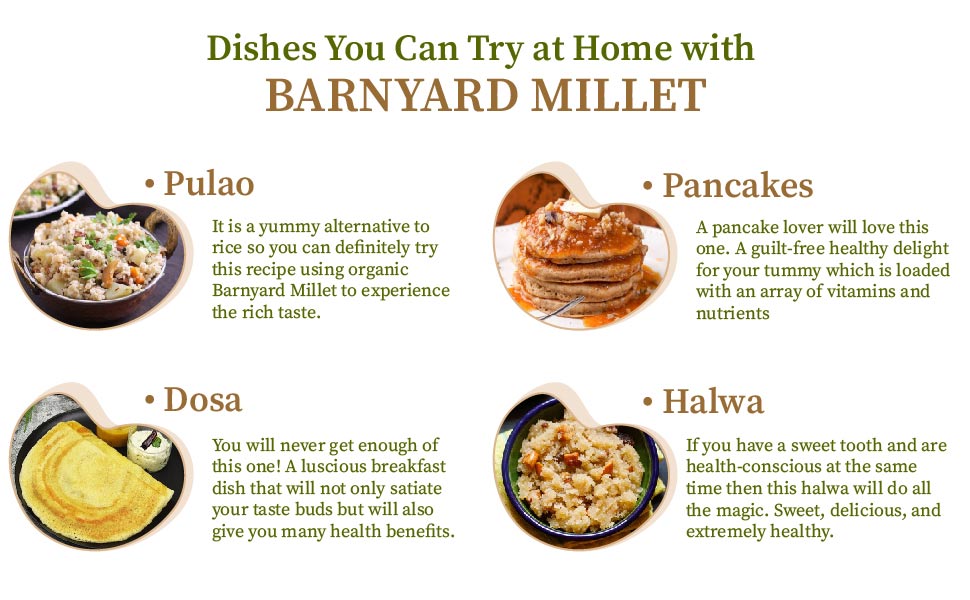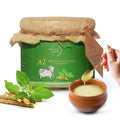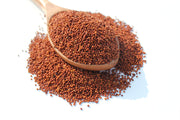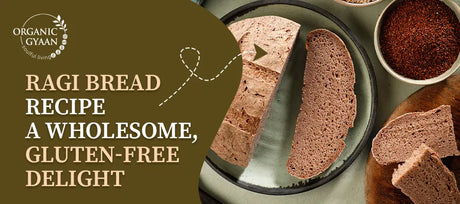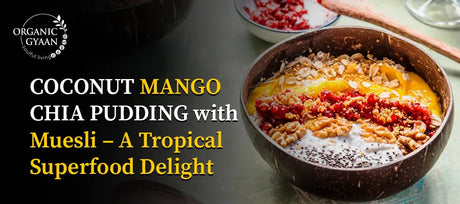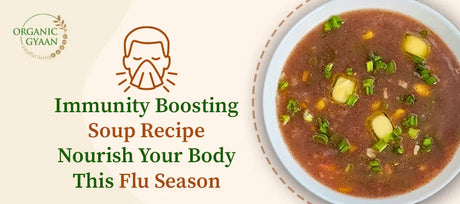Barnyard (Jhangora) Millet, also known as “Vrat ka Chawal,” is a traditional Indian grain used for over 2,000 years-especially during fasting, detox, or recovery. At Organic Gyaan, we offer unpolished, chemical-free barnyard millet grown with eco-friendly, water-saving methods.
Naturally gluten-free, high in fiber, and easy to digest, it supports overall wellness-from cleansing the body to improving digestion and calming the nervous system. With its light texture and mild nutty flavor, it’s the perfect rice alternative for clean and conscious eating.
Health Benefits of Barnyard Millet
- Detox support for liver & kidneys
- Boosts nervous system function
- 3.5x more fiber than rice
- Alkaline grain for pH balance
- Low glycemic index
- Provides sustained energy
- Rich in iron & calcium
- Grown with minimal water & no chemicals
Recipe Ideas with Barnyard Millet
- Upma & Khichdi
- Kheer & Ambali
- Dosa, Idli & Roti
Commonly Known As
- English: Barnyard Millet, Jhangora Millet
- Hindi: झंगोरा
- Marathi: समा / सांवा
- Gujarati: સમો
- Sanskrit: श्यामाका
- Tamil: குதிரைவாலி
- Telugu: ఉడాళు
- Malayalam: കുതിരവാളി
- Kannada: ಓದಲು
- Punjabi: ਸਾਂਵਾ ਚੌਲ
- Bengali: শ্যামা চাল
- Odia: ଜଣା
Choose organic barnyard millet and discover a grain that heals, nourishes, and sustains- naturally. Whether you're fasting, cleansing, or simply seeking better nutrition, the barnyard millet uses are endless. Try it today and experience the wholesome power of jhangora millet for yourself.
FAQ
1. What is barnyard millet?
Barnyard millet is a type of cereal grain that is widely cultivated in India, Africa, and some parts of Asia. It is considered a highly nutritious grain, rich in fiber, protein, vitamins, and minerals.
2. Is barnyard millet gluten-free?
Yes, barnyard millet is gluten-free, making it an ideal grain for people who are gluten intolerant or have celiac disease.
3. What are the health benefits of barnyard millet?
Barnyard millet is High-fiber barnyard millet aids digestion, lowers heart disease and diabetes risks. It is also Rich in protein, B vitamins, iron, and calcium.
4. How is barnyard millet consumed?
Barnyard millet is versatile-enjoy it in salads, soups, or as a side dish. It adapts well to various recipes, adding nutty flavor and chewy texture.
5. How is barnyard millet different from other types of millet?
Barnyard millet sets itself apart with small, white grains, gluten-free nature, nutty flavor, and a nutritional profile rich in fiber, protein, and essential minerals.
6. How do I store barnyard millet?
Jhangora rice should be stored in an airtight container in a cool, dry place. It will keep for up to 6 months if stored properly.
7. How do I cook barnyard millet?
Rinse barnyard millet, use 1:2 ratio of millet to water, simmer for 15-20 mins. Fluff, let it rest. Perfectly cooked, enjoy!
8. Can barnyard millet be eaten during fasting?
Yes, barnyard millet is a fasting-friendly option, often consumed during fasting periods due to its gluten-free and nutritious qualities.

























